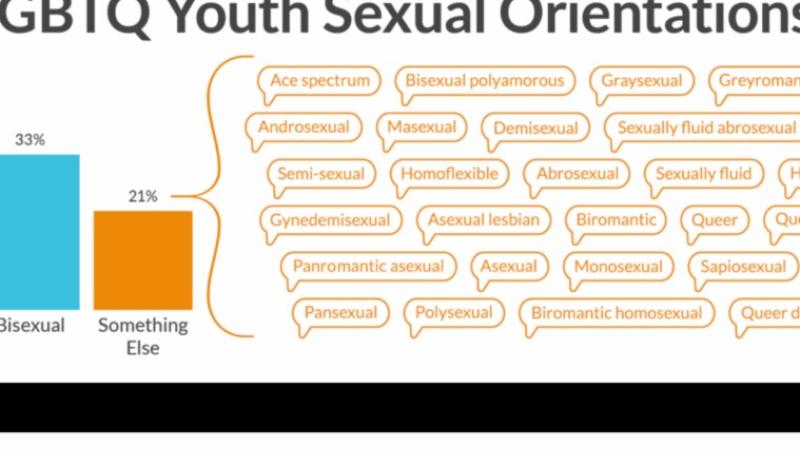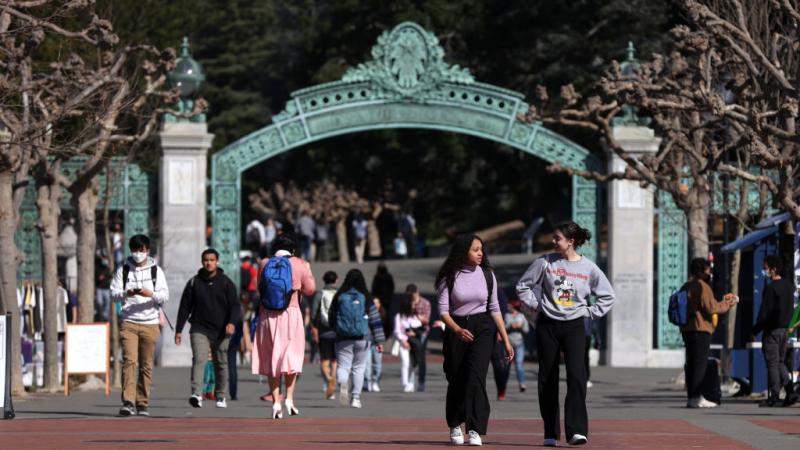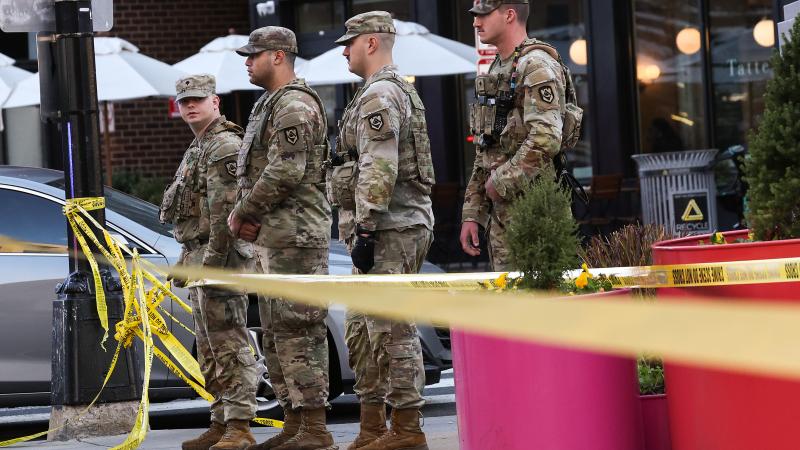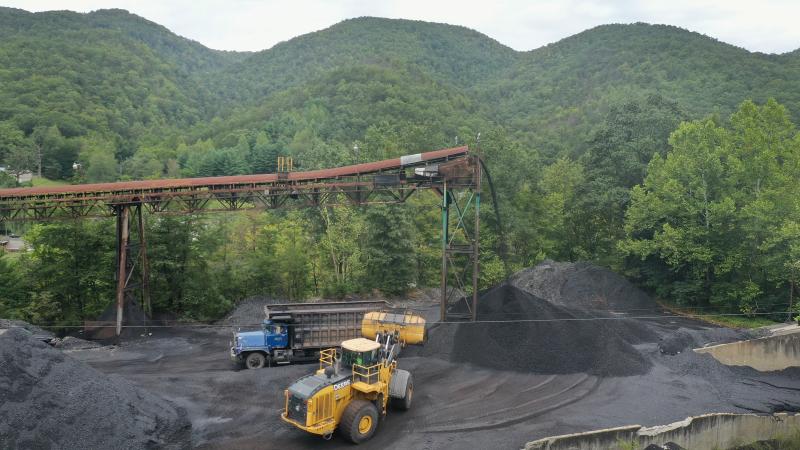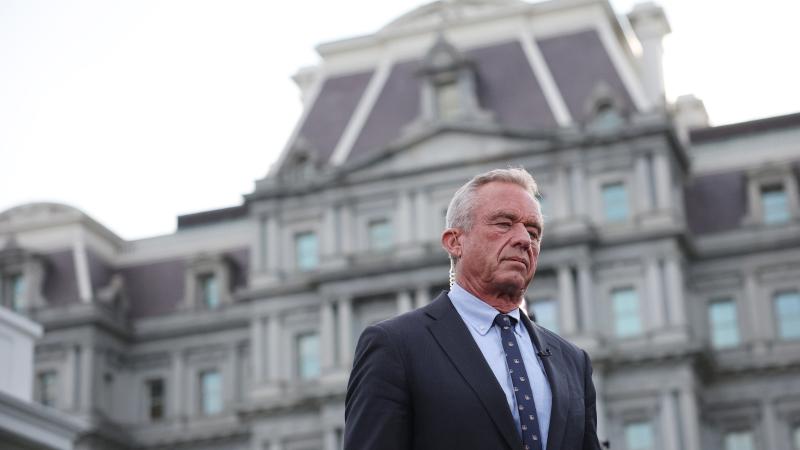Of mice and mold: Student sit-in at HBCU Howard gets national support, alum VP Harris stays silent
Civil rights icon Jesse Jackson, rapper Gucci Mane, NAACP among the political power brokers, celebrities, groups backing students, trying to help
Howard University students' nearly month-long sit-in protest over dorm conditions – including reports of mice and mold – has garnered national support from some the country's most influential leaders and groups. The school president, however, refuses to meet face-to-face with the protesters over their demands.
Civil rights icon Jesse Jackson, rapper Gucci Mane and the NAACP are among the political power brokers, celebrities and groups that have either tried to resolve the matter, or are lending support to the students at the Historically Black University in the nation's capital.
Mane canceled his performance at the school's immensely popular fall homecoming weekend, while Jackson tried to broker a deal between the students and school President Wayne A.I. Frederick.
Democratic members of Congress Sen. Elizabeth Warren and Rep. Ayanna Pressley, both of Massachusetts, have also lent their support to the students.
Meanwhile, Vice President Kamala Harris, among the school's most famous alum, has yet to weigh in publicly. Her silence coincides with the Biden-Harris administration's failure to secure significant funding for HBCU's in the Build Back Better plan.
The massive $3.5 trillion budget originally included $45 billion for minority-serving institutions. However, after a significant round of cuts that have left the spending bill closer to $1.75 trillion that figure is now reportedly closer to $10 billion.
Frederick attempted last week, during a semiannual state-of-the-university address, to quell some of the unrest on his campus.
Since mid-October, Howard students have been occupying the campus’s Blackburn University Center – many have set up tents inside and around the building – to protest reports of mold, mice, and crumbling infrastructure in Howard's dorm buildings.
They took action after concluding their concerns, which ensued upon return in August to the urban campus and include water damage and ineffective air conditioning, were insufficiently addressed.
"Then we started noticing that there was mold in our rooms," freshman Autumn Hester told the Washington Post. She added that the air conditioning in her dorm room was not functioning during the hottest days of the semester and at one point the room’s temperature reached 92 degrees.
Some students report being admitted to local hospitals after coughing up blood from unattended to mold in their dorm rooms.
While the school has repeatedly said that the university is inspecting and testing dorm rooms for mold, and increasing the frequency of regular building cleaning by bringing in additional vendors to supplement their maintenance team, some students say the efforts are a day late and a dollar short.
One anonymous student told the Post that after reporting the mold in his room to the school, he sought medical treatment for an acute sore throat. When a maintenance team came to inspect his room, “they said there was nothing in my vent.” Ultimately, said the student, “I had to clear out the mold myself.”
Following weeks of what the students feel have been insufficient conversations, Frederick said during his address, “The current events that are taking place on campus are very important. I hear the concerns, I want to be absolutely clear about that. We apologize for anybody that was inconvenienced in any way, shape, or form.”
He also the school needs to improve upon "preventative maintenance," thus preventing issues like the ones unfolding on the campus from reoccurring.
"I think where we’re lacking, and we have to do more, is in preventative maintenance, so avoiding trouble when issues do occur, responding to them quickly so that many residents are not inconvenienced for any length of time," he said. "I certainly take full responsibility for that."
Frederick’s most recent comments come just over one week after he wrote a letter condemning the continued occupation of the Blackburn building, reprimanding the student protesters, and demanding an end to the demonstration.
"There is a distinct difference between peaceful protest and freedom of expression and the occupation of a university building that impedes operations and access to essential services and creates health and safety risks," he wrote.
According to Frederick, some Sodexo employees who work in the Blackburn cafeteria – the largest one on campus – have been laid off as the student protest has caused the shutdown of the building. Sodexo confirmed that "upon reopening the Center, all displaced employees will be able to return to work based on their seniority."
In June, Howard University’s Board of Trustees unanimously voted to restructure itself and eliminate the faculty, student, and alumni positions on the board after an external review conducted by the firm Laurence Morse. Students want those positions permanently reinstated. They're also looking to secure a meeting with university heads about housing, as well as legal, disciplinary, and academic immunity for protestors, and an in-person town hall with Frederick.
Frederick did briefly engage in a question-and-answer period at the end of his Nov. 5 remarks, during which he responded to pre-submitted and selected questions. Students, however, remained displeased with what they felt was a stunt meant to placate them.
One sophomore student, Jasmine Joof, told WAMU she believes Frederick is “just trying to save face, so [he] can be like, ‘No, I have done a Q&A, and I was listening to students’ voices,’ which just isn’t true.” During the Q&A, Frederick said he would be willing to sit down with the protesters once they vacate the Blackburn building.
Much of the blame for the reportedly deteriorating conditions of the Howard student dorms is being placed on the partnership the university struck up with development company Corvias. One student, who launched a class-action lawsuit shortly after the protests began, names Corvias and Howard as parties that "failed to resolve" a "widespread mold problem.
Now, students are calling on the university to end its 40-year partnership with Corvias, and accept responsibility for the damage the company has caused.
During his address last week, Frederick addressed the partnership, saying, "While we have housing partners that are responsible for this, ultimately, they are housing Howard students, and so we don’t just simply pass that on to them. While we have a contract, we are always going to be riding herd with them to make sure they are doing what we expect them to do."

